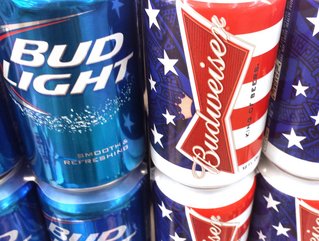Budweiser now brews its US beer using 100% renewable energy

Budweiser has committed to using renewable energy to brew its US beer as part of a global shift to green power by its parent AB InBev.
A “100% renewable electricity” logo will be added to its US bottles and cans, Budweiser said, adding that it expects to see a lift in sales following a dip.
About 41 million Budweiser beers are sold every day worldwide and therefore, switching from fossil fuels to renewables will be the equivalent of taking 48,000 cars off the road every year.
SEE ALSO:
- Bacardi to acquire Patron Tequila in $5.1bn deal
- Heineken to grow Red Stripe brand with $16mn investment in production line
- AB InBev in space: Why the first beer on Mars could be a Budweiser
AB InBev, the world’s largest brewer, is one of more than 100 international firms to have committed to using renewable energy under the Paris accord.
Since the start of this year, Budweiser has bought power equivalent to its US brewing demands from Enel Green Power’s 300-megawatt capacity Thunder Ranch Wind Farm in Oklahoma.
Speaking of the energy shift AB InBev CEO Carlos Brito said: “Climate change has profound implications for our company and for the communities where we live and work.
“Cutting back on fossil fuels is good for the environment and good for business, and we are committed to helping drive positive change,” he added. “We have the opportunity to play a leading role in the battle against climate change by purchasing energy in a more sustainable way.”
The Brazilian-Belgian company said it will offer the logo to other markets and companies. It also aims to cut emissions in other areas such as the growing of hops and transporting of beer.
Last March, AB InBev committed to getting 100% purchased electricity for renewables by 2025 and it expects to reach a rate of 31% this year.
Last month, the brewing giant also revealed that it had placed an order to reserve 40 of Tesla Inc.’s electric Semi trucks to help deliver its beer.
In its third quarter of 2017, Budweiser revenues dipped 2.2% worldwide despite gains in international non-US markets, AB InBev said.
- Resurgence of Manufacturing Powering ReindustrialisationSustainability
- What's Apple’s Promise on Clean Energy and Water Investment?Renewable Energy
- Colgate-Palmolive’s Energy Efficiency Recongised Once AgainSustainability
- EY Helps Make Extreme E a ‘Sustainable Beacon’ of RacingSustainability






